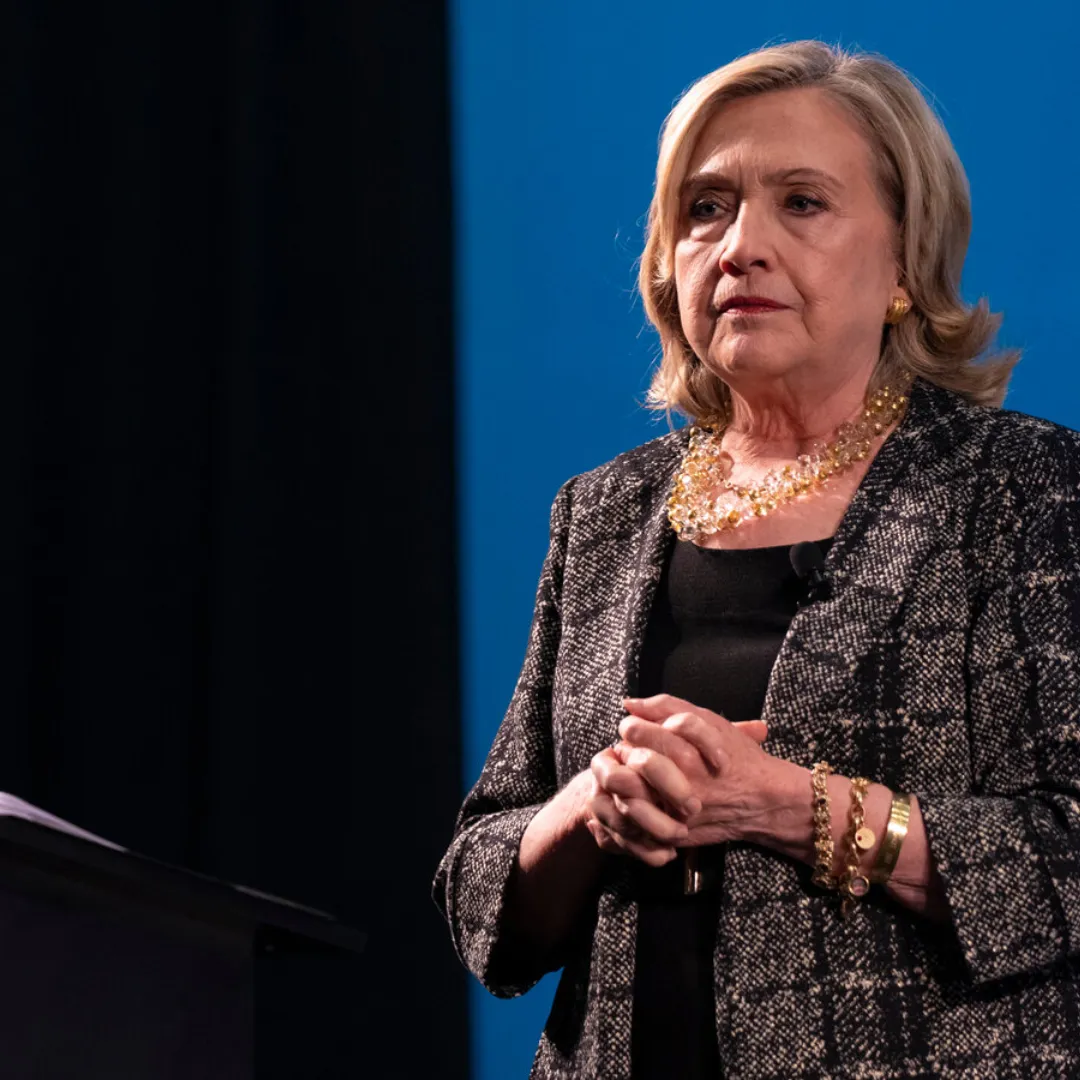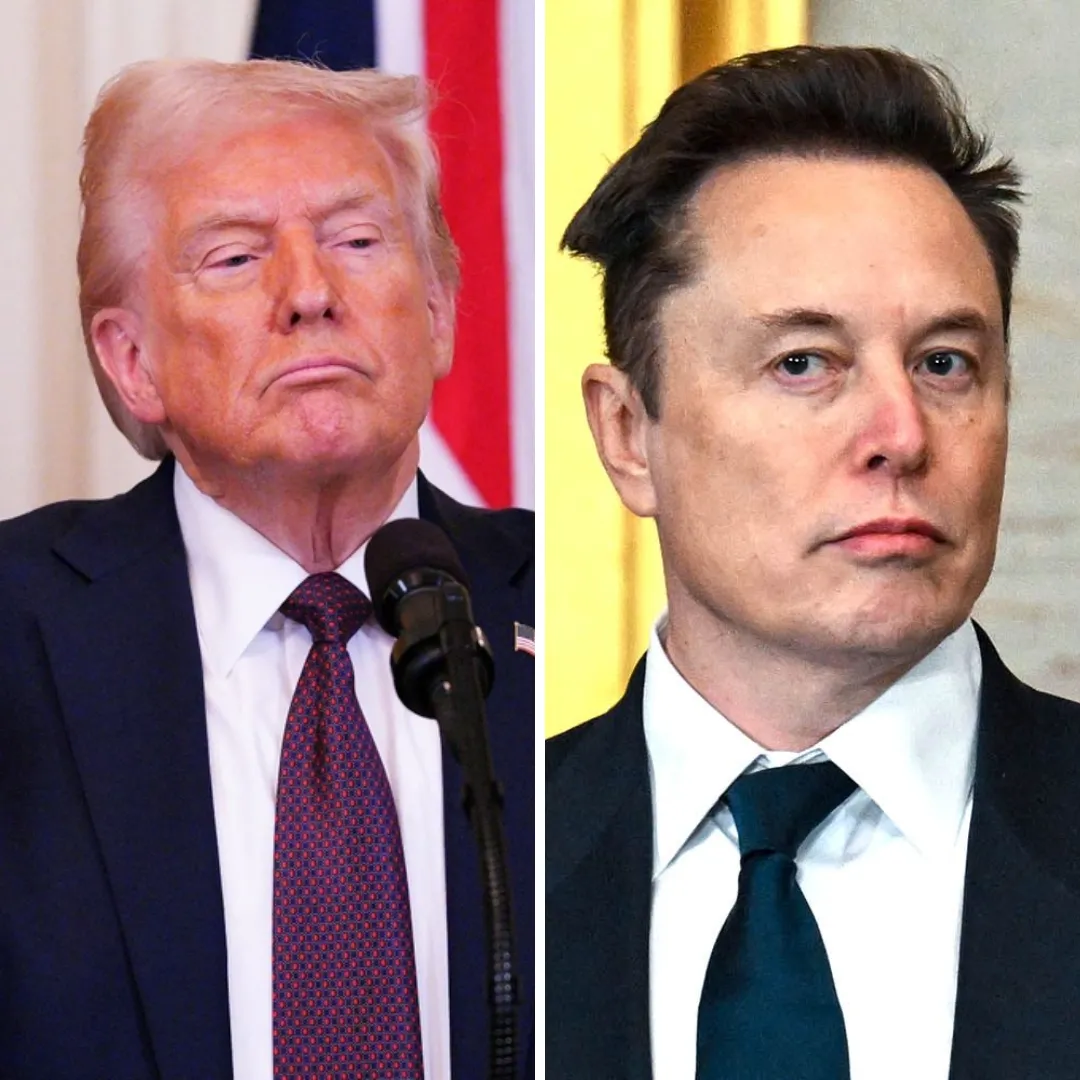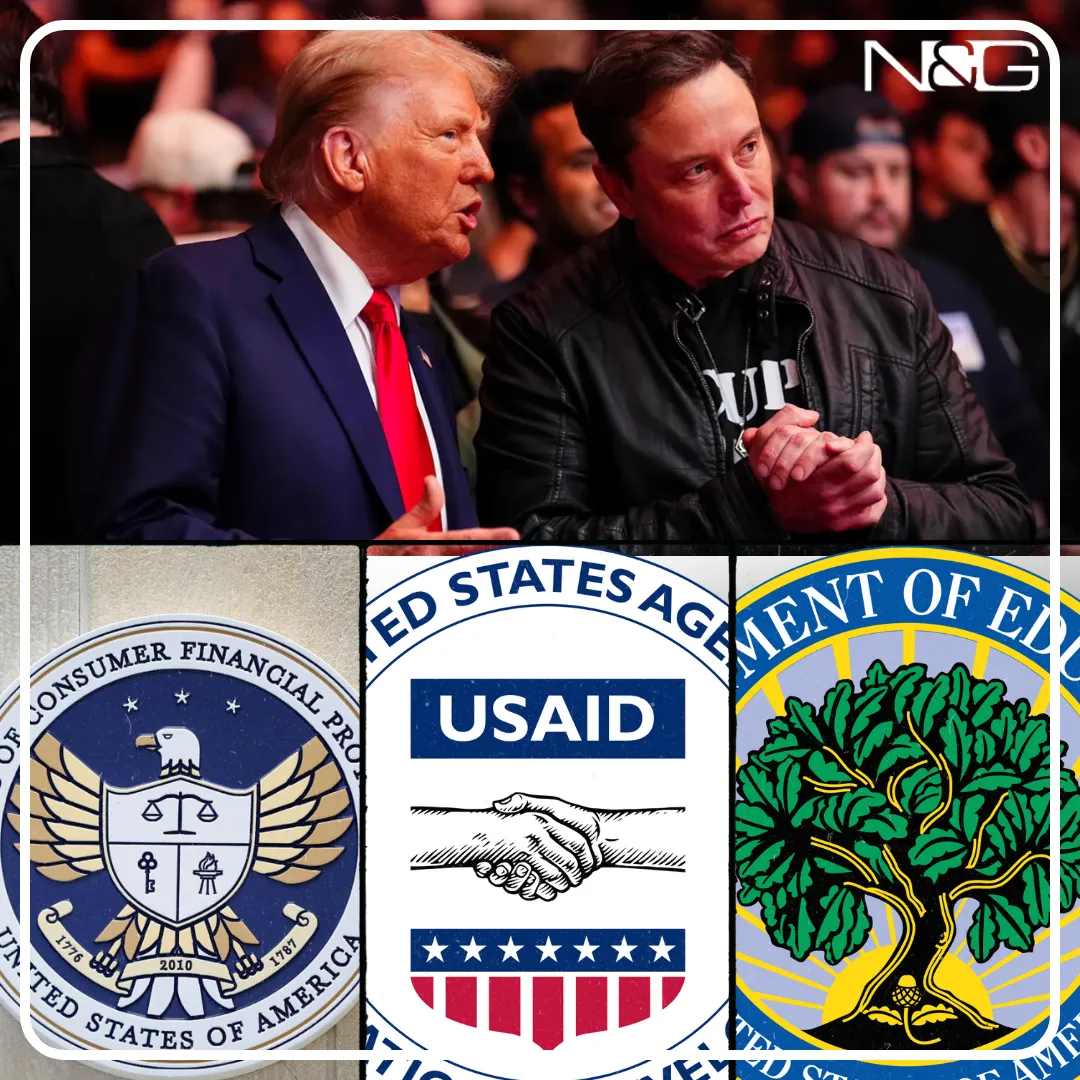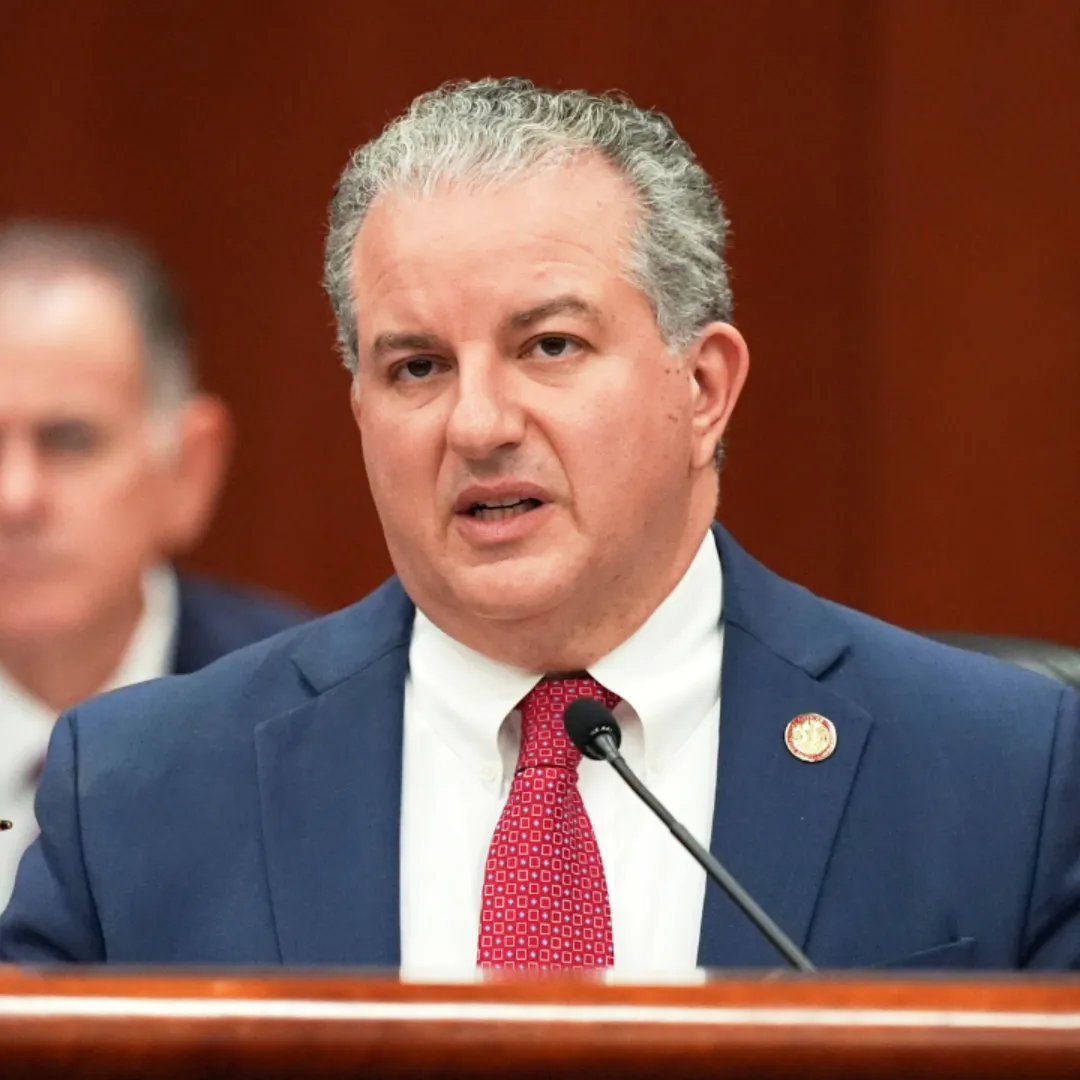In a string of pointed posts on Truth Social, Trump lashed out at a group of Republican senators — including Mitch McConnell (Ky.), Susan Collins (Maine), Lisa Murkowski (Alaska), and Rand Paul (Ky.) — who have indicated they may vote in favor of a Democratic resolution to terminate Trump’s emergency declaration that allows him to impose 25 percent tariffs on Canadian imports.
“To the people of the Great States of Kentucky, Alaska, and Maine,” Trump wrote, “please contact these Senators and get them to FINALLY adhere to Republican Values and Ideals.”
Trump’s posts were as much a rallying cry as they were a rebuke, urging voters to pressure their senators and slamming the lawmakers as “disloyal” and “difficult,” accusing them of undermining Senate Majority Leader John Thune and the broader Republican agenda.
At the center of the controversy is a resolution introduced by Sen. Tim Kaine (D-Va.), along with fellow Democrats Amy Klobuchar (Minn.) and Mark Warner (Va.), that would terminate President Trump’s emergency declaration giving him authority to unilaterally impose tariffs on U.S. allies like Canada.
The resolution, which is expected to go up for a vote on Wednesday, is symbolic in nature — even if it passes the Senate, it is unlikely to make it through the Republican-controlled House or gain Trump’s signature.
Still, its passage would amount to a political embarrassment and expose deeper rifts within the GOP on trade, foreign policy, and executive authority. “The Senate Bill is just a ploy of the Dems to show and expose the weakness of certain Republicans,” Trump warned.
Trump has framed the tariffs as a national security necessity, arguing that Canada and other trade partners have not done enough to stop the flow of fentanyl and other synthetic opioids into the United States. “Who can want this to happen to our beautiful families, and why?” Trump posted. “They are playing with the lives of the American people.”
The administration argues that by placing high tariffs on Canadian goods — including steel, aluminum, and energy products — they are raising the cost of doing business for traffickers and sending a strong message to foreign governments to enforce their borders more aggressively.
But not all Republicans are convinced — or compliant. Senators like Collins, Murkowski, Paul, and even Thom Tillis (N.C.) have raised red flags about the economic consequences of broad-based tariffs, especially against a close trading partner like Canada.
“These tariffs will hurt our own industries more than they’ll help,” Sen. Paul warned in an interview last week. “And if the president can unilaterally declare anything an emergency, then we’ve abandoned constitutional checks and balances.”
Sen. Collins voiced concern for border-state economies, citing the impact on Maine’s paper, seafood, and manufacturing sectors that rely heavily on trade with Canada.
While Trump turned up the volume on Truth Social, Senate Majority Leader John Thune (R-S.D.) offered a more measured but equally firm defense of the president’s emergency declaration.
“If we’re serious about ending the fentanyl crisis in America, we need to address the entirety of the crisis,” Thune said. “Ending this declaration would send the wrong message — that we’re not committed on all fronts.”
Thune acknowledged economic concerns but argued that public health and national security should take precedence.
Democrats, meanwhile, are treating the GOP rift as an opportunity to highlight what they call Trump’s overreach and the economic damage of his tariff-first trade strategy.
“These emergency declarations are being abused,” Sen. Kaine said on the Senate floor. “We must restore congressional oversight and stop punishing our allies for problems they didn’t create.”
Kaine and his allies have emphasized that the flow of fentanyl into the U.S. comes primarily from China and Mexico, not Canada — making Trump’s trade strategy not only ineffective, but misdirected.
As with many Trump-era political battles, the real issue may not be policy — but loyalty.
By calling out members of his own party, Trump is drawing a hard ideological line and forcing Republicans to make a choice: stand with him or risk being branded “disloyal” ahead of the 2024 election cycle. “What is wrong with them,” Trump wrote, “other than suffering from Trump Derangement Syndrome?”
His use of TDS, a term popularized by Trump’s allies to mock critics who they say are irrationally obsessed with him, was particularly notable. By framing opposition as emotional rather than principled, Trump seeks to delegitimize dissent within his own party.
Wednesday marks the official start of Trump’s newest wave of tariffs, including:
- 25% tariffs on imports from Canada, China, and Mexico
- 10% blanket tariffs on imports from most other countries
- Reciprocal tariffs against trading partners who tax American goods at higher rates
Trump has dubbed the occasion “Liberation Day”, casting the policy as a bold reassertion of American independence and economic strength. “Major progress is being made. Don’t let the Democrats have a Victory,” he posted Tuesday.
But the idea that tariffs equal “liberation” is controversial — particularly among economists, who warn that these taxes on imports will likely:
- Raise prices for American consumers
- Strain supply chains
- Prompt retaliatory tariffs from other nations
- Hurt farmers and manufacturers who rely on exports
With the vote looming, all eyes are on the four Republican senators who have signaled willingness to support the resolution: McConnell, Collins, Murkowski, and Paul.
If even a handful of Republicans break ranks, it could provide the Democrats enough votes to symbolically rebuke Trump — a move that could further fracture party unity and raise questions about Trump’s grip on the GOP heading into the election.
The battle over tariffs is more than a dispute about trade. It’s a battle for the soul of the Republican Party — between those who favor Trump’s hardline, unilateral style and those who prefer institutional process and international cooperation. “Disloyalty” in Trump’s world isn’t about policy differences — it’s about resistance to his dominance.
With Trump pressuring senators, Democrats pushing back, and American businesses bracing for impact, Liberation Day may turn out to be more about division than deliverance.







